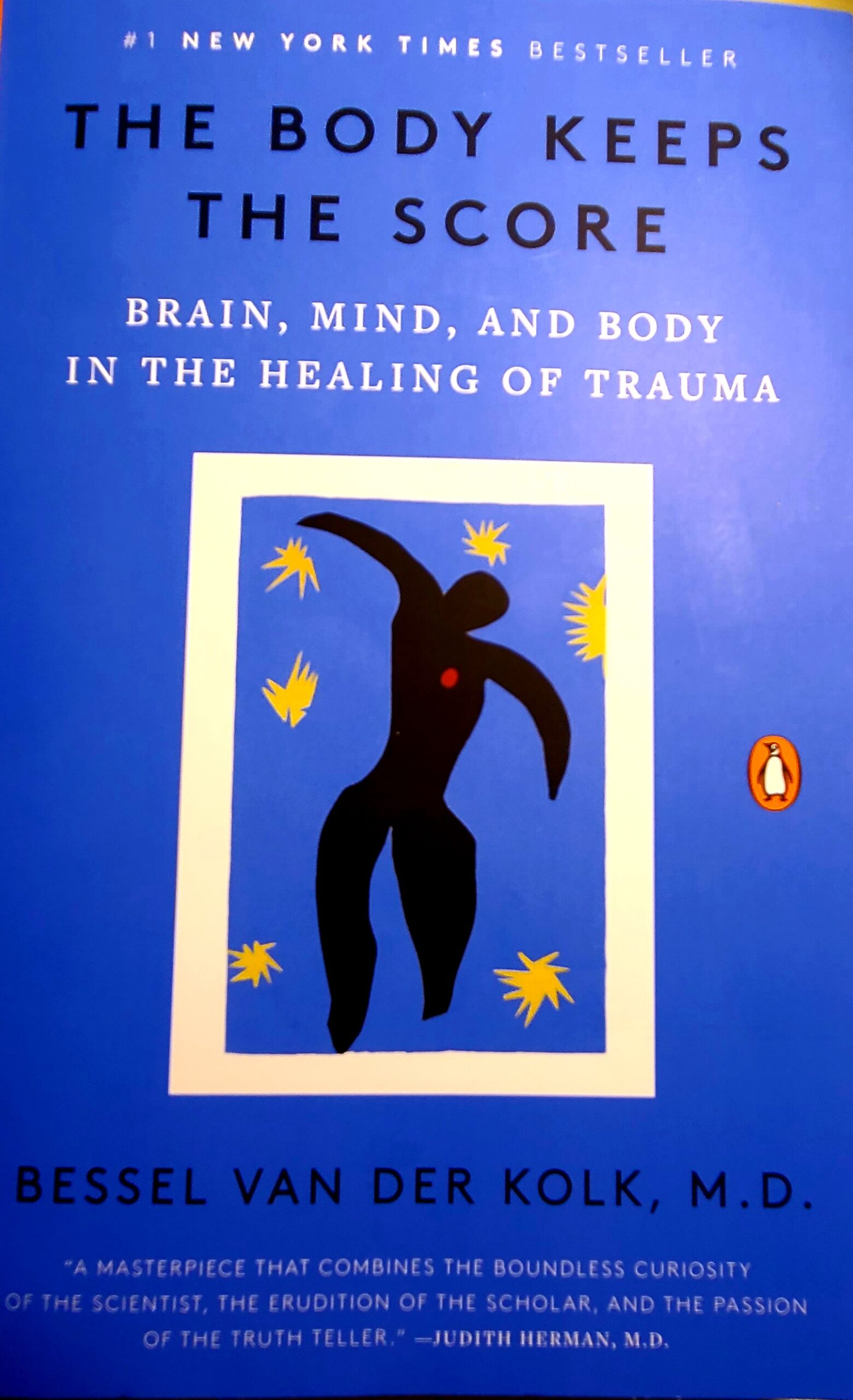 Something significant is happening amidst the chaos of the current COVID situation. People are becoming interested in the psychology of trauma, As I write this segment, a modern classic in trauma theory, The Body Keeps the Score, sits atop the New York Times best seller list. Opinion | This Conversation Will Change How You Think About Trauma – The New York Times (nytimes.com) This book and its findings are especially important for survivors of childhood sexual trauma because it both dispels myths and false beliefs commonly held about trauma and offers important insights for recovery.
Something significant is happening amidst the chaos of the current COVID situation. People are becoming interested in the psychology of trauma, As I write this segment, a modern classic in trauma theory, The Body Keeps the Score, sits atop the New York Times best seller list. Opinion | This Conversation Will Change How You Think About Trauma – The New York Times (nytimes.com) This book and its findings are especially important for survivors of childhood sexual trauma because it both dispels myths and false beliefs commonly held about trauma and offers important insights for recovery.
One false notion is the idea that trauma is just a normal memory about an unpleasant event. Likewise, many erroneously believe that some trauma survivors “hold on” to the abuse or that they could “let go” if they really wanted to do so. Indeed, the author, van der Kolk points out that the conscious mind is often unaware of the full extent of the damage caused by trauma and even worse it blames the self for causing it.
Although explaining what trauma actually is and does, neurologically, is a bit complicated, here is practical summary of the most important findings of his contemporary research concerning what trauma is, how it harms the survivors and how they can heal from it:
Defining trauma: Rather than simply causing a return of a memory of a bad event , ” When someone experiences a traumatic event or experiences extreme fear, brain chemistry is altered and the brain begins to function differently–this is called the “Fear Circuity” Neurobiology of Trauma (unco.edu) Here are some crucial ways trauma alters brain functioning:
Five Ways Trauma Wounds Survivors
1) Trauma ruptures the connection between the mind and the body, numbing the ability to feel emotion.
2) Trauma tricks the mind, by hiding the trauma from conscious memory, into thinking the trauma was the survivor’s fault. This false self-blame results in an overwhelming and destructive sense of guilt and shame.
3) Trauma interferes with social connections and the person’s sense of belonging to the larger human community.
4) Trauma impairs the ability for a survivor to be vulnerable or become emotionally close to others.
5) Trauma can even corrupt the naturally soothing experience of human touch and can make it feel threatening.
Five Keys to Recovering from Trauma
1) Restore the connection between mind and body. Through movement, physical exercise, dance and other body-mindful work, the connection between thoughts, feelings and bodily sensations is re-established.
2) Relocate the Source of the Trauma Outside the Individual. The survivor discovers his/her innocence and that the sense of shame was false. The responsibility lays with the abuser.
3) Re-establish social connections .Rediscover the ability to be vulnerable and emotionally available.
4) Recover an accurate perspective of time . Experiencing trauma safely in the past opens the future to new outcomes
5) Re-experience the meaning of touch as a calming and pleasurable experience.
When these changes have taken place, the survivors are once again free from the horror of the past. They are no longer terrorized by various triggers and can respond to contemporaneous challenges in new and more adaptive ways. The damage of trauma to the mind is healed by re-integrating thoughtful consciousness with emotions and the physical sensations which were associated with the traumatic experience. In that process, the mind gains perspective and the trauma is safely experienced as something that happened in the past. Not being limited to the distorted perceptions and panic driven reactions caused by the trauma, survivors are able to imagine different and more positive outcomes.
Something needs to be made clear. The items listed above aren’t really “tips”. They are an outline of the process of the ways healing occurs. It is important to understand that recovery from trauma usually does not happen spontaneously but , in stead . requires professional assistance and help. That said, I believe that it is important for folks to be informed about the process and clear about the objectives of treatment.
This new research is, indeed, cause for celebration and can provide a clear road map to recovery for people who suffer from childhood sexual trauma.
Rev. Michael Heath, LMHC, Fellow AAPC August 31, 2021
www.revmichaelheath.com



